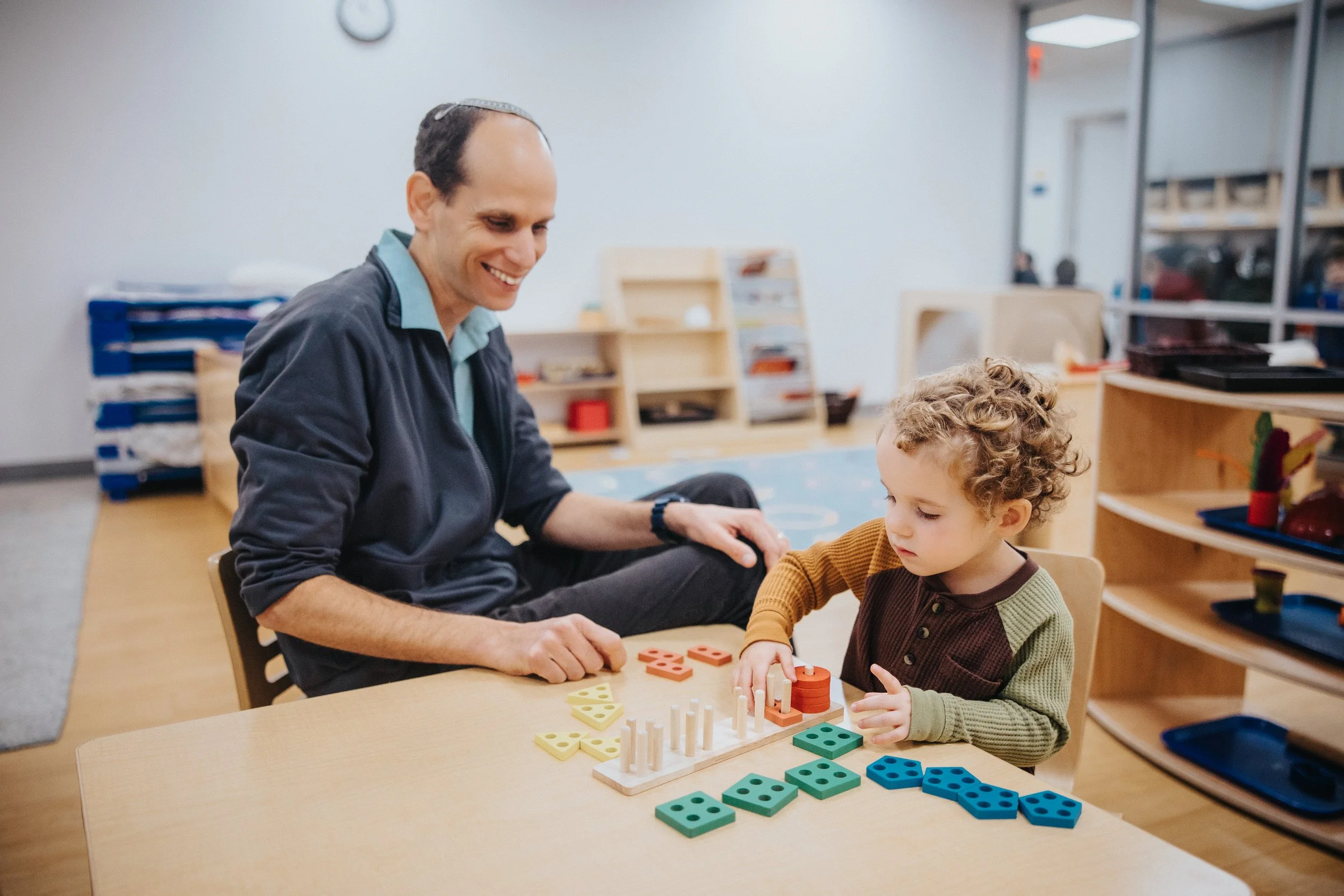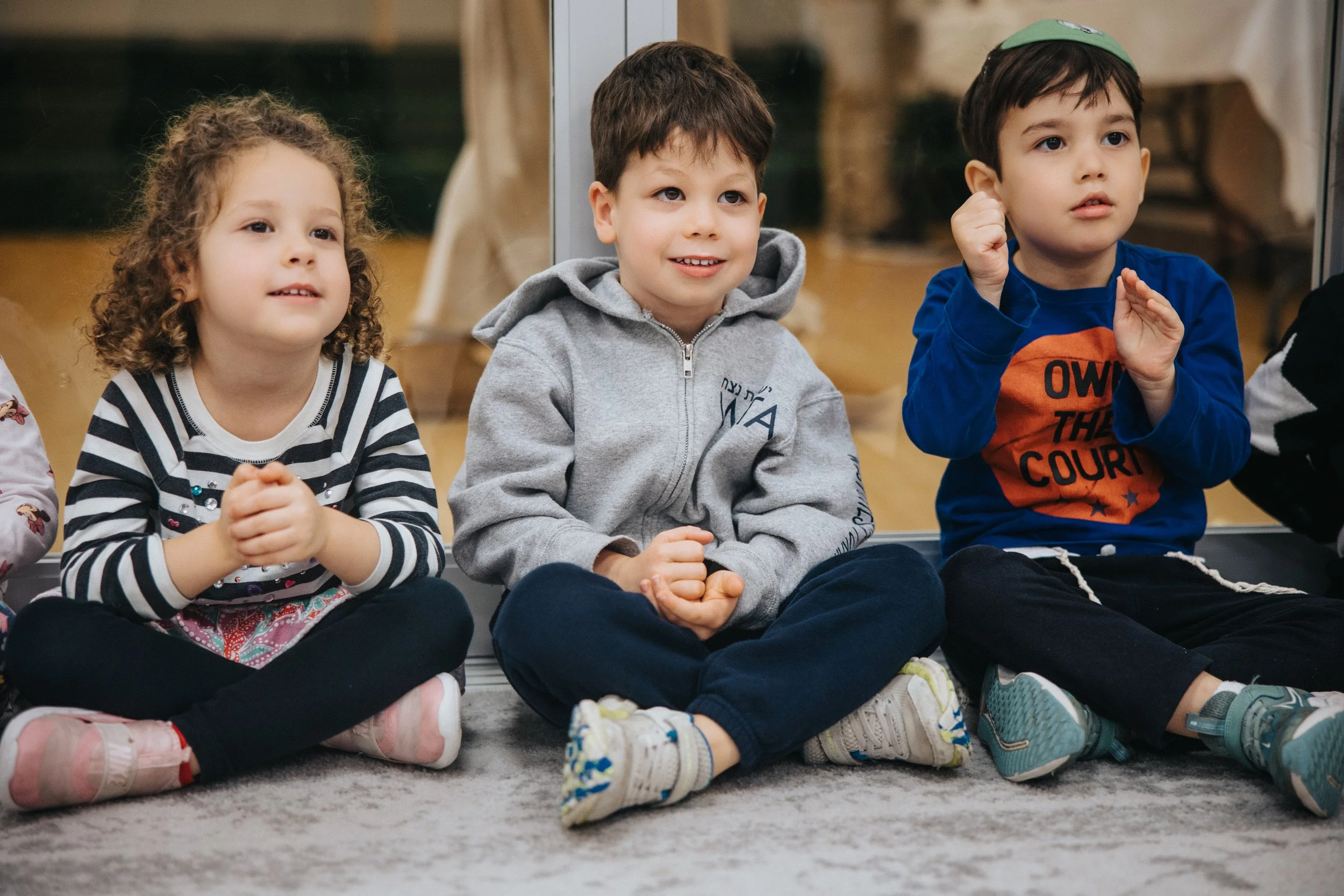Jewish-Montessori Early Childhood Curriculum
Infants (2 months) through Kindergarten
At WTA, our Jewish Montessori Early Childhood program nurtures independence, curiosity, and a deep sense of belonging. Guided by the Montessori philosophy, children learn in carefully prepared environments where they are trusted to explore, choose meaningful work, and develop at their own pace.
Jewish life is woven throughout every Montessori curricular area. Parsha, Shabbat, and chagim are integrated into language, math, sensorial, and practical life works — including shabbat, holiday, and Israel-themed materials and experiences — creating a seamless connection between Torah, daily routines, and joyful learning.
-
Our Infant environment emphasizes trust, sensory exploration, movement, and early independence.
Language & Ivrit Exposure
Infants absorb English and Hebrew through songs, tefillah melodies, caregiver language, and repetition. Hebrew is naturally embedded in daily routines such as feeding, diapering, and transitions, building familiarity and comfort with sound and rhythm.Sensorial & Movement
Infants explore textured fabrics, sound cylinders, visual tracking mobiles, and tactile objects that refine the senses and support early brain development. Freedom of movement supports strength, coordination, and confidence.Practical Life Foundations
While adults prepare food at this stage, infants are gently introduced to food routines—watching snack preparation, participating in feeding, and developing early self-regulation and awareness around mealtime.
Jewish Life
Through a proprietary Jewish-Montessori Infant Limudei Kodesh curriculum developed right here at WTA by our Early Childhood educators, parsha, Shabbat, and chagim are introduced through sensory baskets, music, and gentle ritual experiences that create warmth, predictability, and a loving first connection to Jewish life. -
Toddlers thrive as they begin to assert independence and engage in purposeful, hands-on work.
Language & Ivrit b’Ivrit
Vocabulary and expressive language grow through storytelling, songs, classified cards, and object-to-picture matching. One teacher speaks exclusively in Hebrew, allowing children to absorb Ivrit naturally through conversation, books, and music.Practical Life & Snack Preparation
Snack preparation is a cornerstone of the toddler day. Children wash hands, cut fruits and vegetables using child-safe knives, pour water or milk, set tables, and clean up after themselves. These real responsibilities build independence, coordination, concentration, and pride.Sensorial & Math
Knobbed cylinders, color tablets, sound cylinders, and number rods help toddlers refine perception, order, and early quantity. Jewish themes are often incorporated—sorting Shabbat symbols or counting holiday objects.
Jewish Learning
Toddlers gain familiarity with Shabbat and chagim through symbols, songs, brachot, and dramatic play. Jewish values are modeled daily through kindness, patience, and care for the community. -
As children mature, their work becomes more focused, expressive, and collaborative.
Language & Early Literacy
Children develop phonemic awareness, storytelling, sequencing, and early writing using sandpaper letters, movable alphabets, and phonetic objects. They learn to articulate ideas, ask questions, and express themselves confidently.Hebrew Language Development
Hebrew vocabulary and written exposure expand through books, songs, matching works, and guided conversations that parallel English literacy development.Practical Life & Food Preparation
Children take increasing ownership of snack preparation—planning steps, preparing a wider variety of foods, serving peers, and cleaning dishes. These experiences foster responsibility, executive functioning, and respect for shared space. These real responsibilities build independence, coordination, concentration, and pride.Sensorial & Math
Knobless cylinders, pink tower, brown stair, geometric solids, spindle boxes, and golden beads support refined discrimination and mathematical thinking. Holiday-themed math and sensorial works deepen Jewish connections.
Jewish Life & Shabbat
Parsha stories, Shabbat rituals, and chagim are explored with growing depth. Children celebrate Shabbat weekly in the classroom and participate in a special Shabbat Oneg with Rabbi Avi, building excitement and connection to Jewish tradition. -
Kindergarten bridges Montessori Early Childhood with formal elementary learning while preserving joy, independence, and depth.
Language & Literacy
Children decode, read, write, and build early comprehension and structured expression through advanced Montessori language works, guided reading, and writing projects.
In Kindergarten, we begin to introduce technology into the classroom to enhance the learning environment and prepare students for Lower School curriculum. Technology enhances instruction through:
IXL, which allows teachers to individualize skill practice
Epic, providing leveled reading and exposure to diverse genres
Ivrit & Hebrew Literacy
Students strengthen Hebrew reading, vocabulary, and oral presentation skills through immersive instruction and text-based learning.Math & Abstract Thinking
Children transition from concrete to abstract thinking using advanced golden bead work, fractions, problem-solving, and multi-step reasoning.Practical Life & Leadership
Children take increasing ownership of snack preparation—planning steps, preparing a wider variety of foods, serving peers, and cleaning dishes. These experiences foster responsibility, executive functioning, and respect for shared space.These real responsibilities build independence, coordination, concentration, and pride.
Parsha & Jewish Identity
Parsha stories, Shabbat rituals, and chagim are explored with growing depth. Children celebrate Shabbat weekly in the classroom and participate in a special Shabbat Oneg with Rabbi Avi, building excitement and connection to Jewish tradition.
Montessori Curricular Areas
-
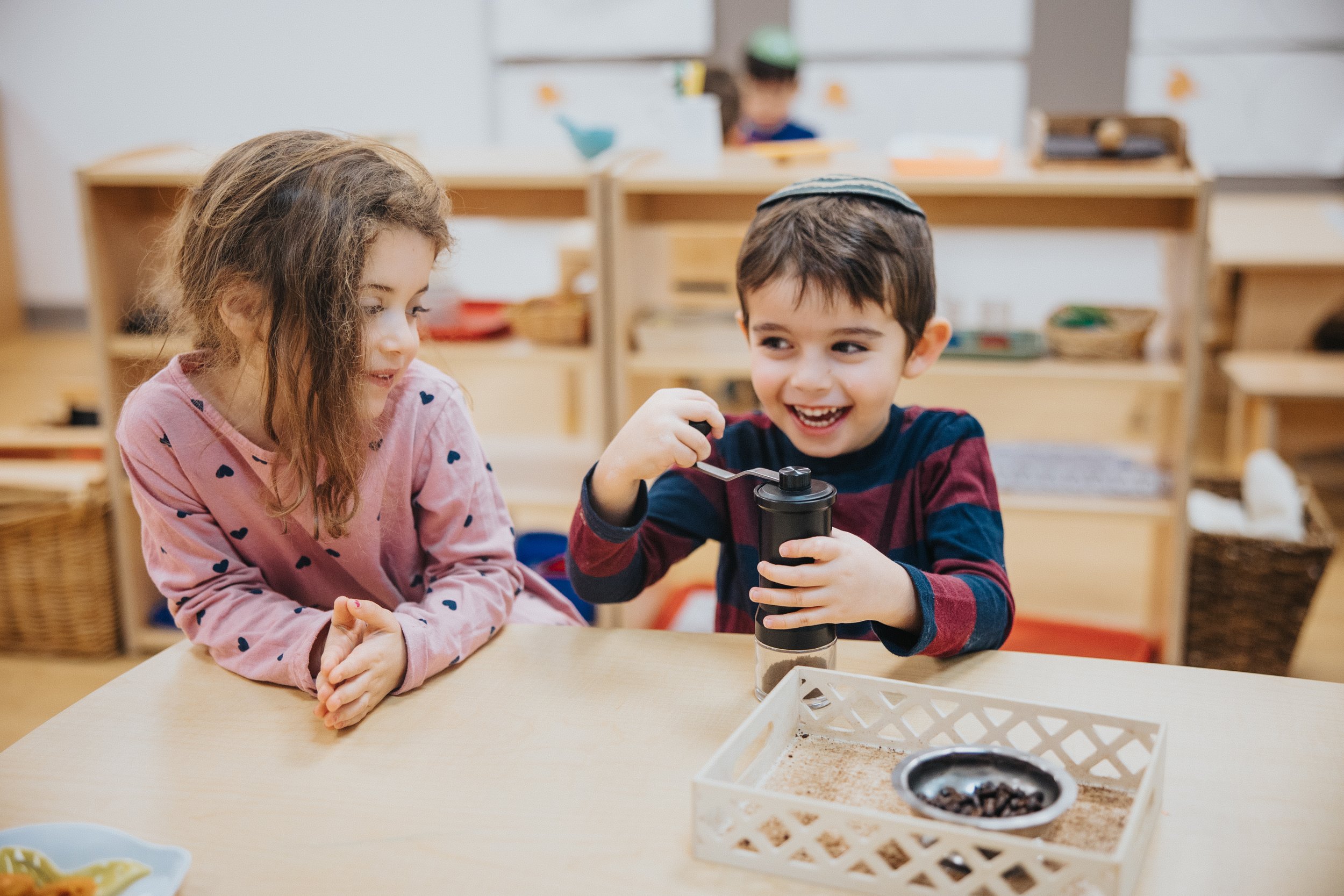
Practical Life
These activities teach children responsibility and build confidence as they learn to take care of themselves and their environment through skills like washing dishes, brushing, cutting, pouring, folding, and mixing.
-
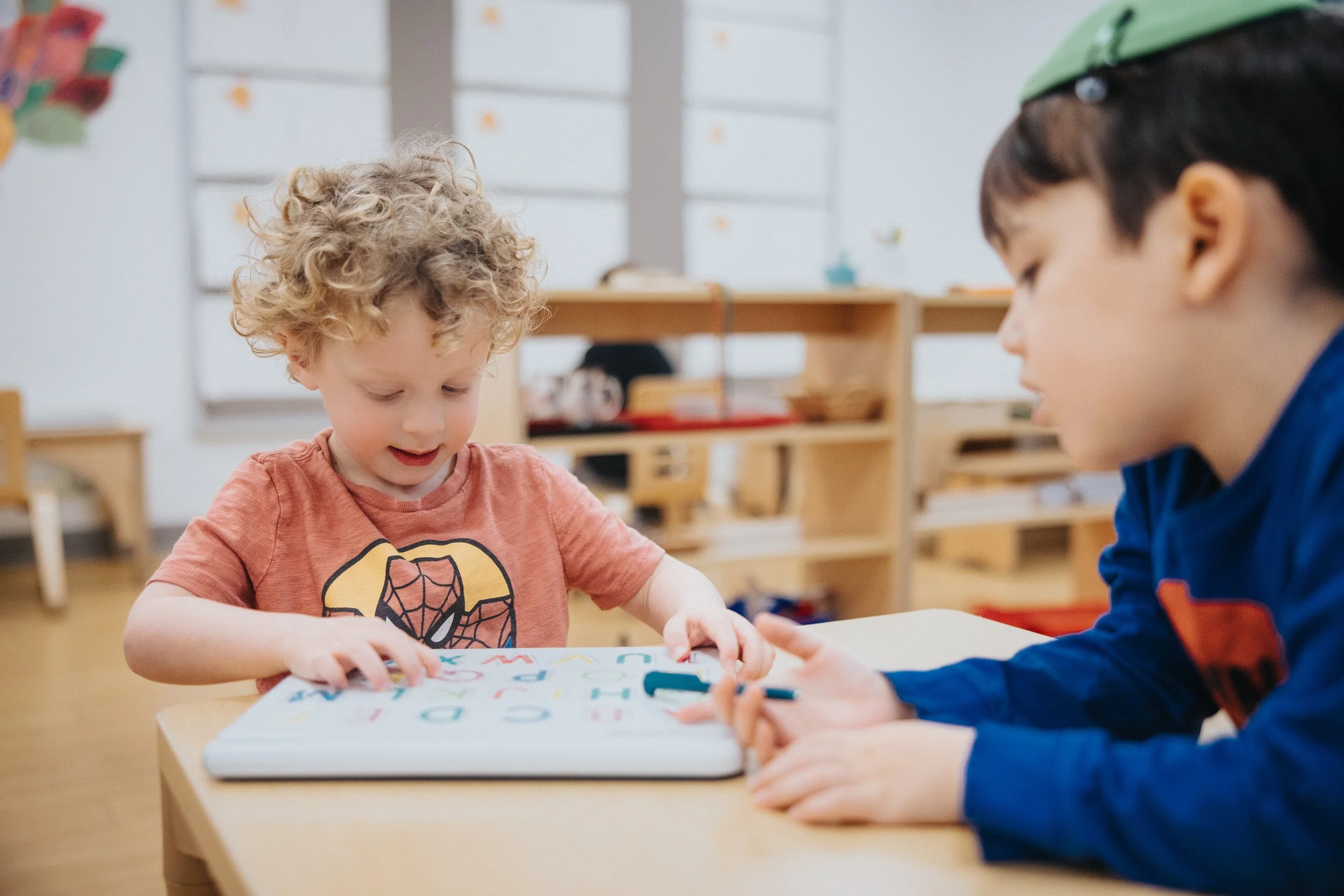
Sensorial
Sensorial activities ask children to use their senses to perceive, classify, distinguish, and organize their surroundings. These skills are needed for math, geometry, and language.
-

Language
Children build early reading and writing skills by identifying letters, practicing letter sounds, and decoding word formation.
-
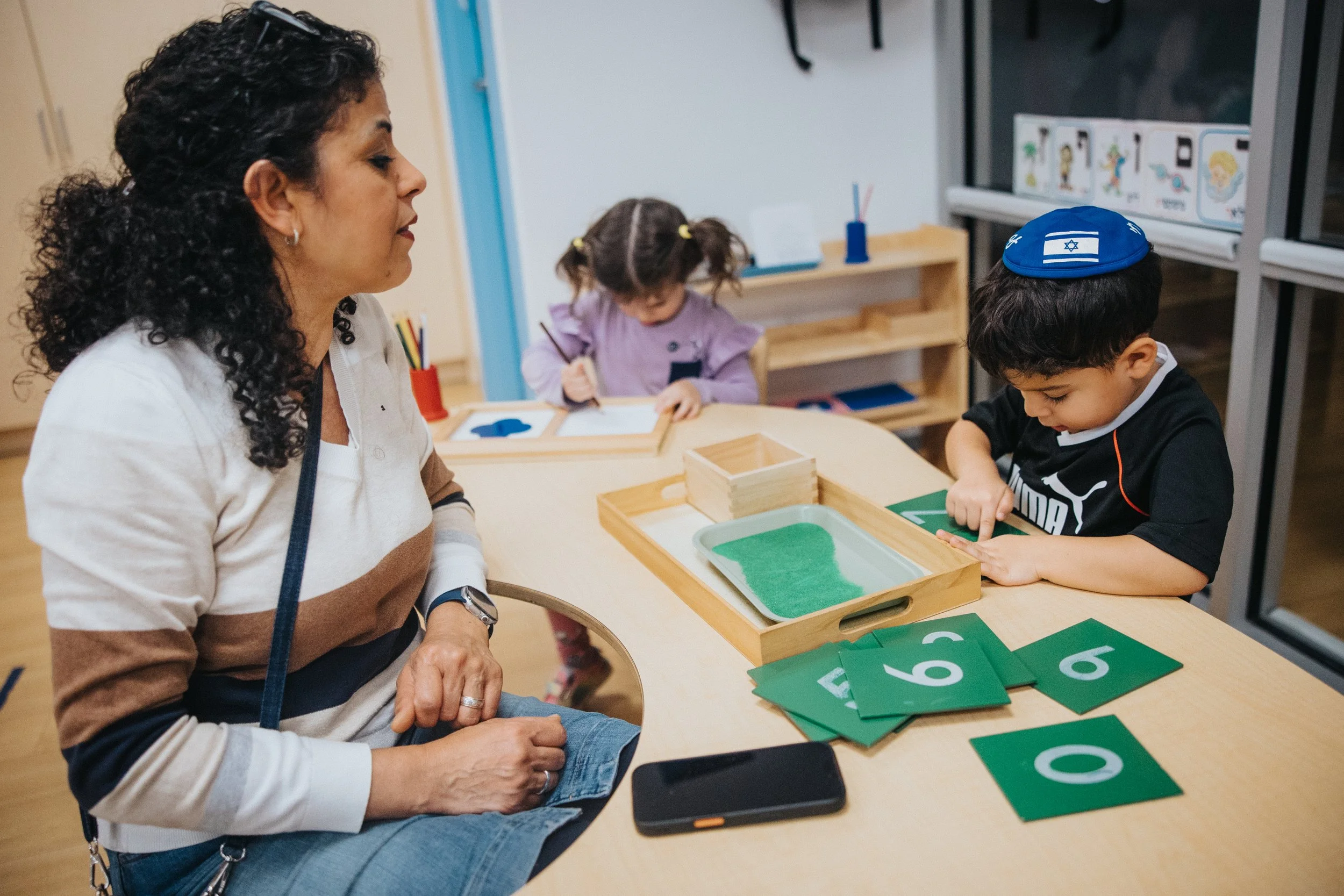
Math
Foundational math skills are built early, with even the youngest learners matching and exploring shapes, while older students move on to counting, quantities, and basic arithmetic.
-
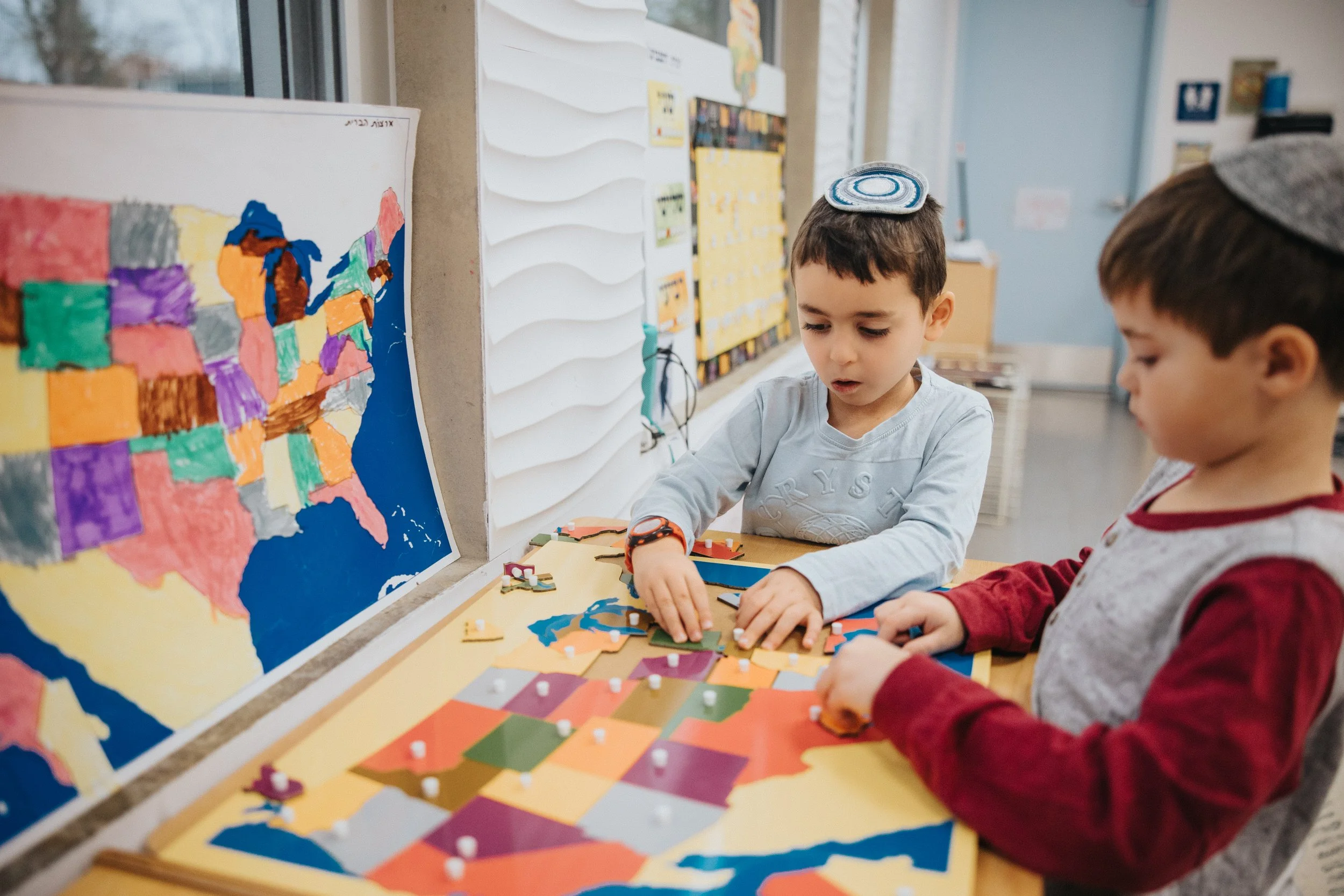
Geography
Geography skills like map exploration and direction open the door to location-based learning, for example, units about animals and their habitats.
-
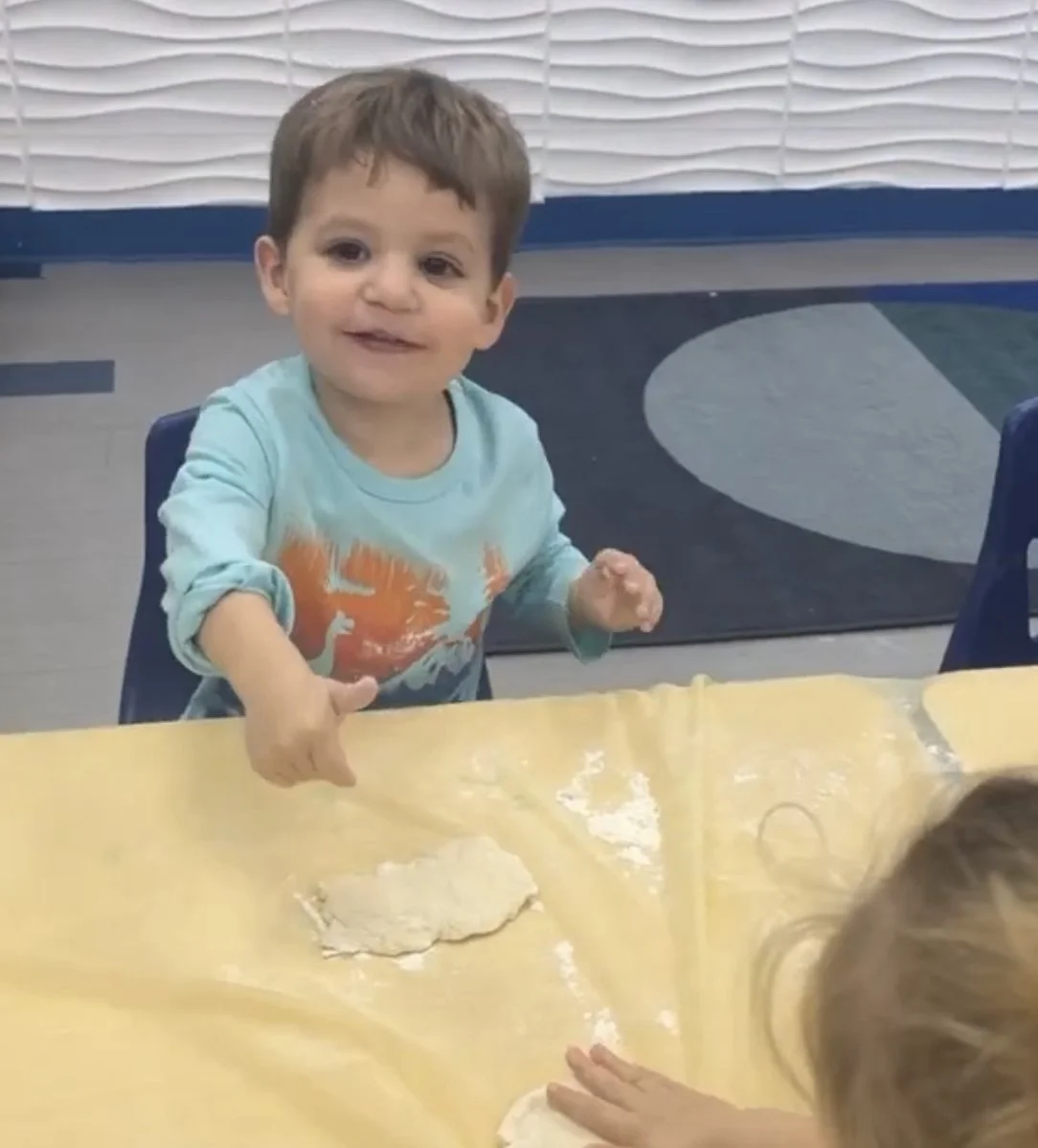
Botany
Students learn about the natural world, including key characteristics of the seasons, as well as where things come from and how they grow. This is supported by our on-campus garden.
Early Childhood FAQs
-
Our infant room is open from 8:00 AM to 5:00 PM, providing a nurturing environment all day long. For children aged 18 months through Kindergarten, school hours are 8:00 AM to 3:00 PM, including age-appropriate rest time to keep little learners refreshed. Need extra time? We offer convenient early care starting at 7:30 AM and aftercare until 5:00 PM for busy families, available for an additional fee.
-
For the 2025–26 school year, busing services will be available starting at age 2. Our hot lunch program is open to children beginning at 18 months. After school extracurriculars—called chugim—vary by semester and are typically offered for Pre-K and older students, providing fun and enriching opportunities to explore new interests beyond the classroom.
-
We support toilet training in our 2s program and continue on an individual basis in the 3s. To help ensure a smooth transition, children are expected to be fully toilet trained before entering Pre-K.
-
Our Hebrew-speaking teachers primarily use Hebrew, but they warmly support your child by using English whenever needed. We create a caring, encouraging environment where children feel comfortable and confident as they gradually build their Hebrew skills.
